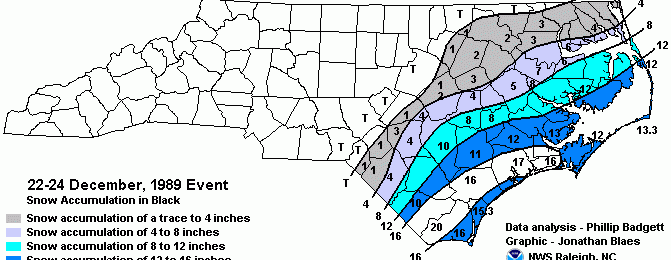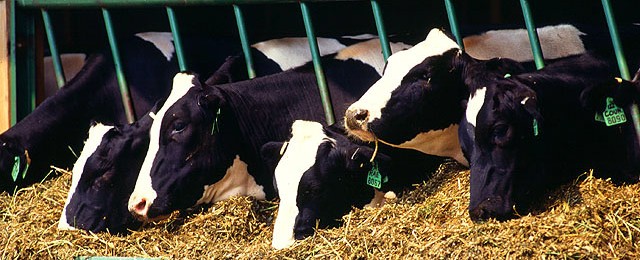Climate and Ag in the news
-

In honor of the winter and holiday season, I thought you might be interested in an article about the science of snowflakes. Did you know that the shape snowflakes takes depends on the atmospheric conditions in which they form? The most common snowflakes, which we make with paper and scissors in schoolrooms, are called dendrites,…
Posted in: Climate and Ag in the news -

The State Climate office of North Carolina released a blog post today describing the coastal snowstorm of 1989 in North Carolina. If you are dreaming of a white Christmas, you might enjoy the story, which is at https://nc-climate.ncsu.edu/climateblog?id=111&h=5666e5c1.
-

Even though this has nothing to do with climate and agriculture, I still find this a fascinating study. The Washington Post published an article yesterday on a new NASA-based study showing major increases in lighting as viewed from satellites in December compared to other times of year. They attribute it to increases in lighting from…
-

There are climate stories in the news almost every day. Here are three that I thought were especially interesting this week. Men’s Journal provided a balanced discussion of GMOs and their place in agriculture. I’m not going to discuss the GMO controversy (other than to note that this is a topic that, like vaccination and…
-

Growing Georgia posted a recent article from an Ohio State University expert discussing the extra nutritional needs of cattle and other livestock in colder weather. While we don’t have as frigid weather as other parts of the US here in the Southeast, it is still good to be reminded of ways to keep our animals…
-

NOAA released their November 2014 summary for the globe today, and it showed that November was the 7th warmest on record for the earth as a whole, although the Southeast and the eastern half of the US was very cold throughout the month. For the year to date, 2014 is the warmest on record for…
-

Farm Industry News published a very interesting panel discussion on the future of farming across the world in the face of changing climate, consumer demands, and other challenges. You can find it at https://farmindustrynews.com/precision-farming/future-farming. One of the themes that come up in the discussion over and over again is the important of water availability and…